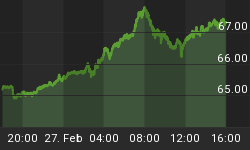This commentary is about eurozone GDP growth. It is also about headlines.
Headlines first. There is ever increasing media content and coverage. All media are seeking your and my attention.
It has always been the case that news headlines are used to attract attention. In fact, as best I know there are people who specialize in writing news headlines. In most cases, an extreme or overstated headline will get greater attention than a factual one. Hence reading only headlines won't necessarily get readers to the right - or perhaps even close to the right - place.
Recession is a word that for economists has a narrow meaning. In economics "recession" means two or more consecutive calendar quarters of decline in a country's (or a geographic area's) gross domestic product. The euro zone has been in "technical economic recession" for the past 18 months. Multiple news sources reported this morning that when viewed collectively euro zone GDP grew by 0.3% in the quarter ended June 30. Headlines this morning include It's Official: The Eurozone Has Returned To Growth, Euro area exits record-long recession led by Germany, France, German, French growth should help euro zone exit recession, and Eurozone: recession over.
One would think, if all they read is those four headlines - and worse if the reader did not know the "economist-speak" meaning of "recession" - that all is now well in the euro zone from an economic point of view. Tell that to an unemployed person in Cyprus, Greece, Italy, Portugal, Spain - or France or Germany for that matter - and see what reaction you would get.
Q2 GDP growth second. If you read these commentaries you know the "devil is in the details". If you read only one of the referenced articles, read Eurozone: recession over and review the chart that shows seasonally adjusted percentage changes in GDP for Q2 2013 and Q2 year/year for each of the 17 euro zone countries. You will also find the same data for the other 11 countries that with the euro zone countries comprise the 28 country European Union.
If you take the time to add up the data as I did this morning, you will find that of the 17 euro zone countries 4 (Cyprus, Italy, Netherlands, and Spain) showed GDP declines in Q2 2013 from Q1 2013, and 5 (Greece, Ireland, Luxembourg, Malta and Slovenia) haven't released Q2 data as yet.
Further, if you compare Q2 2013 to Q2 2012 GDP percentage changes for the euro zone countries you will find that 7 (Belgium, Cyprus, Greece, Italy, Netherlands, Portugal, and Spain) suffered year/year GDP percentage drops, and that data for 4 countries (Ireland,Luxembourg, Malta and Slovenia) has not as yet been released.
Combine the foregoing information with the fact that economic statistical information is often subsequently adjusted (which of course could mean "up" or "down"), and a view that much economic statistical data falls in the category of "its not perfect but its the best we have". Headline readers then might not be quick, smile, move on, and watch the financial markets absorb this morning's "good news" from the euro zone.
It's Official: The Eurozone Has Returned To Growth - reading time 2 minutes (Business Insider). Euro area exits record-long recession led by Germany, France - reading time 3 minutes (Ekathimerini). German, French growth should help euro zone exit recession - reading time 3 minutes (Reuters). Eurozone: recession over - reading time 2 minutes, chart studying time longer (Citywire Money).
Click here to receive a FREE Abridged version of The Economic Straight Talk Newsletter
Informed Investors are Successful Investors.
No obligation or credit card required.















